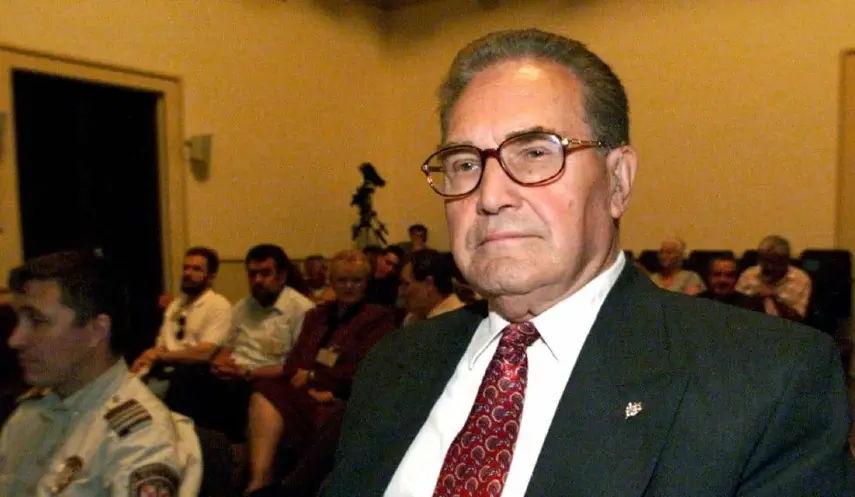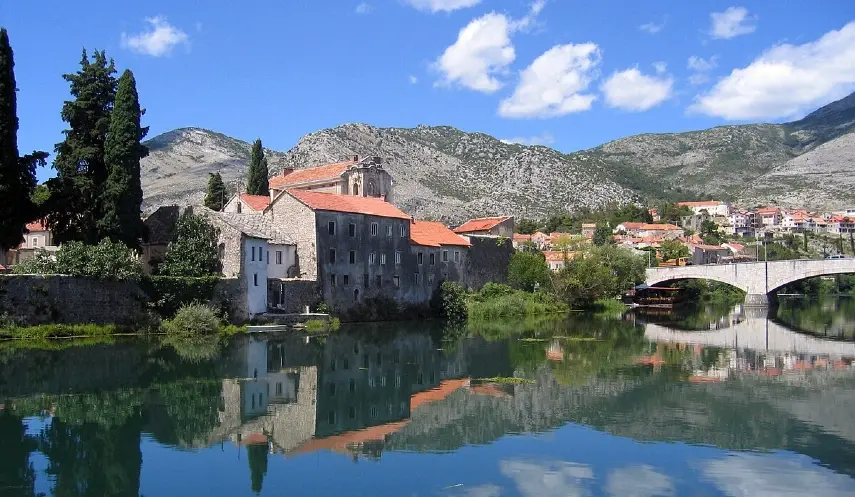DINKO ŠAKIĆ EXTRADITED FROM ARGENTINA 27 YEARS AGO
Region - criminal - anniversary
06/17/2025
11:30

BIJELJINA, JUNE 17 /SRNA/ - The former commander of the Croatian concentration camp Jasenovac and war criminal Dinko Šakić /1921–2008/ was extradited from Argentina to Zagreb Airport on June 18, 1998, where he was officially arrested by the Croatian judicial authorities and taken to pre-trial detention.
Šakić died in prison on July 20, 2008. He was sentenced to 20 years in prison. His crimes and involvement in executions and torture were undeniable and numerous.
This Ustaša war criminal fled to Argentina after the fall of the Independent State of Croatia /NDH/, a Nazi-allied puppet state, where he lived peacefully until the 1990s.
Encouraged by the fact that Croatia had become an independent state, he gave a major interview to Croatian media, stating that he would “do it all over again.”
This triggered a response from Nazi hunter Efraim Zuroff and several international bodies, leading to Šakić's extradition to Croatia under their pressure. His trial exposed the full extent of both Šakić's ruthlessness and that of his sympathizers.
Šakić was indicted for crimes against civilians committed at the Jasenovac concentration camp during his time as its commander, and was also charged with personally carrying out executions during that period.
The trial began on March 15, 1999, and was attended by 70 journalists and several representatives of foreign embassies in Zagreb. Establishing the facts proved difficult, as there were already few surviving witnesses at the time.
Nevertheless, the remaining witnesses, most of whom were former camp inmates, testified about the horrors of Jasenovac, while Šakić mostly remained silent and took notes.
Former inmate Vjekoslav Bednjanec testified that Šakić had ordered the hanging of an inmate who had made a new cap for a Ustaša guard without prior approval. The prisoner’s body was left hanging for three days as a warning to others.
Former inmate Jakov Finci recalled the autumn of 1944, when Šakić was the deputy commander of the camp and the Ustaše killed around 3,000 people in just 10 days. Other inmates were forced to bury them.
When Šakić's lawyer asked if such a thing was possible, Finci replied that "everything was possible in Jasenovac".
Finci also testified that Šakić personally killed prisoners.
Former inmate Dragan Roler explained the principle according to which people were brought to Jasenovac.
"Jews came because they were Jews, Serbs because they were Serbs, and Croats, mostly, because they were enemies of the Ustaše," Roler said during the trial.
Čedo Prodanović, a lawyer from Zagreb representing one of the descendants of Petar Bošković, who was killed by Šakić, stated that the prosecutors "did not show enthusiasm" in Šakić's case, and expressed particular regret that no one during the trial asked about the conditions that prevailed in Jasenovac.
At the end of the trial, the Ustaša war criminal was found guilty on most counts of the indictment, including three executions he carried out. He was also found guilty of giving orders for the execution of prisoners.
The court rejected Šakić's claims that people were sent to the camp because they opposed the Ustaše state, stating that they were imprisoned because the NDH "adopted and enforced racist laws".
Taking into account that Šakić never admitted to any crime nor showed any remorse, the Court sentenced him to the then maximum prison term of 20 years.

HAPPY NEW YEAR!

LAST DAY OF THE YEAR MARKED BY LIFE-SAVING OPERATIONS: AIR TRANSPORT OF A PATIENT FROM NEVESINJE TO BANJALUKA

CITY FULL OF VISITORS - ACCOMMODATION CAPACITY ALMOST 100% OCCUPIED



